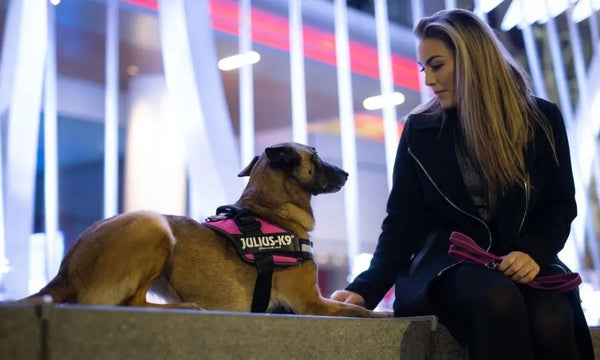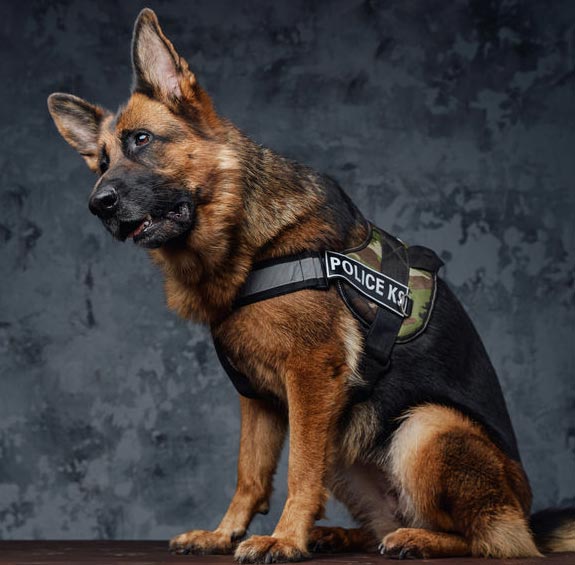Crucial Dog Educating Techniques for a Lifetime of Etiquette
Reliable dog training is fundamental to fostering a well-behaved buddy that improves our lives. Understanding canine actions and using socialization methods can stop prospective issues prior to they arise.
Comprehending Pooch Actions

Furthermore, understanding the inherent instincts and drives of a canine-- such as prey drive, social interactions, and territorial behaviors-- makes it possible for instructors to prepare for and handle certain habits. For example, a canine with a strong prey drive might call for various approaches than one that is much more socially inclined.
Additionally, early socializing and exposure to different atmospheres substantially influence a canine's habits and character. Positive experiences throughout vital developmental durations can cause well-adjusted grown-up pet dogs, whereas adverse experiences may cause anxiousness or hostility.
Favorable Support Techniques
Among the numerous canine training techniques, favorable support approaches attract attention for their efficiency and capacity to reinforce the bond between pet dog and instructor (Ohana K9 Academy). This technique emphasizes fulfilling preferred habits instead than punishing undesirable ones, fostering a much more cooperative and relying on partnership
Positive reinforcement can take many types, including treats, appreciation, toys, or play. The trick is to offer instant benefits when the canine shows the desired habits, permitting them to make the link between the action and the favorable result. If a canine rests on command, giving a treat right away strengthens that behavior, making it much more likely to be repeated.
Uniformity is important in positive reinforcement training. Fitness instructors should use the same cues and incentives to stay clear of confusing the canine. In addition, differing the incentives can preserve the pet's passion and inspiration, transitioning from constant treats to occasional praise or play as the pet masters the behavior.

Fundamental Command Training
Building on the structure developed via favorable reinforcement approaches, basic command training functions as an essential action in developing a well-mannered dog. This training usually includes crucial commands such as "rest," "remain," "come," and "down - Ohana K9 Academy." Each command plays a news vital function in cultivating effective communication in between the pet and its proprietor, enhancing the general bond
Start with short, concentrated sessions lasting no more than 5 to 10 mins to preserve your dog's focus. Make use of high-value treats as incentives, making certain the dog links right habits with favorable end results.
Persistence is vital; pets might call for countless repeatings to comprehend commands totally. Gradually you can check here raise the complexity by introducing variants or interruptions when your canine accurately responds. Regular method reinforces discovered commands, solidifying them in your dog's actions collection. Eventually, fundamental command training not only fosters obedience but likewise enhances safety and promotes pleasurable communications throughout strolls and play, preparing for advanced training techniques in the future.
Socializing Techniques
In the world of pet dog training, socialization methods are vital for cultivating a well-adjusted and positive canine buddy. Reliable socializing involves revealing your pet to a variety of settings, individuals, and various other pets in a controlled and favorable way. The primary purpose is to help your pet create a convenience level with varied experiences, which can considerably lower fear and stress and anxiety in unknown circumstances.
Begin socializing throughout the important developing window of 3 to 14 weeks, when young puppies are most receptive to brand-new experiences. Introduce your pet to different settings, such as parks, urban areas, and homes with various other family pets. Guarantee these experiences are favorable by using treats and appreciation to reinforce etiquette.
Group training classes are an exceptional way to subject your pet dog to various other canines and people in an organized atmosphere. This allows for monitored interactions, aiding your pet dog find out suitable social hints. Routine trips and playdates with well-mannered pets can additionally enhance social abilities.
Dealing With Behavioral Problems
Resolving behavior problems in pets is a critical facet of training that requires an organized technique and understanding of canine actions. Usual issues such as barking, chewing, hostility, and anxiety can go to this site originate from different aspects, including absence of socialization, not enough workout, and even medical concerns.

In addition, developing a structured routine that consists of regular exercise and mental excitement can dramatically reduce behavior problems. For circumstances, interactive playthings can maintain a canine engaged and lower harmful propensities. In instances of serious aggressiveness or stress and anxiety, consulting with a specialist dog instructor or a veterinary behaviorist might be needed.
Conclusion
In final thought, effective pet training techniques, including positive reinforcement, basic command training, and socialization, are crucial for cultivating good actions throughout a pet's life. Addressing behavior concerns with a systematic method not only boosts obedience however additionally reinforces the bond in between canines and their owners.